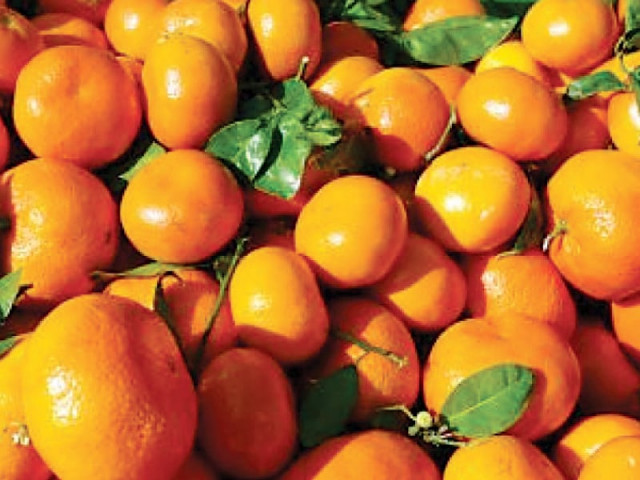Fruits and vegetables: Stricter policies to be enforced
Department of Plant Protection DG counts virtues of continuous efforts

The government is introducing new and stricter policies regarding imports and exports of commodities, including vegetables and fruits, to improve their quality, Department of Plant Protection (DPP) DG Dr Mubarak Ahmed told The Express Tribune.
He said the government’s earlier target was to improve the already-documented policies and then enforce new regulations.
“I am sure the new policies will further help the country improve the quality of its exports and imports,” said Ahmed.
DPP is one of the 14 organisations that work under the Ministry of National Food Security and Research and provides complete quarantine facilities to the fruit and vegetable growers.
The organisation came into the limelight recently when it took unorthodox measures in enforcing quarantine rules in the country for the imports and exports of fresh and other farm products.
“Today, many fruit and vegetable exporters as well as growers are happy as they receive better prices in Europe and other markets. This happened because they followed quality control procedures this year,” said Ahmed.
DPP is not only responsible to look after the quality control of exports but also clears import consignments of different commodities in the country.
This means that the organisation will be held responsible if a mango or kinnow consignment is intercepted in Europe over the presence of fruit flies or if it clears a contaminated container of imported wheat in Pakistan.
Fruit and vegetable exporters, especially in Pakistan, are facing challenges from global warming and ever-strict quarantine laws in the export markets. There is also a growing realisation in Pakistan that the changing environment demands a new approach to tackle the problem.
“We have blocked various containers of commodities at ports in recent weeks that were contaminated. Our message is loud and clear — we will not allow any imports that do not meet prescribed standards,” Ahmed said firmly.
According to him, this has also improved the situation on the imports’ front and the system is getting better.
For instance, commodity importers in Pakistans as well as its exporter sitting in Europe are both careful about the quality of the product. Otherwise, both of them face problems at the clearance stage in Pakistan, he maintained.
Kinnow exports
After the success of registering mango farms, the DPP is now surveying kinnow farms to improve and standardise Pakistan’s kinnow exports.
DPP, for the first time in the country’s history, introduced a well-known global practice of tracking fruits farms and even trees in May 2014 to standardise mango exports to the European Union (EU).
The practice did well, and mango exporters fetched a better price, which in some cases was even double of the average this year. This encouraged authorities to replicate the system to other fruits and vegetables.
However, the case of kinnow requires more government attention because 28% of its consignments were intercepted last year compared to just 5% in the case of mangoes.
“We are sure that we can improve the supply chain of kinnow as we did in mangoes. The situation is expected to improve because when kinnow growers see that following new rules is increasing their farm output and income, they will definitely work hard,” Ahmed added.
Published in The Express Tribune, November 4th, 2014.
Like Business on Facebook, follow @TribuneBiz on Twitter to stay informed and join in the conversation.



















COMMENTS
Comments are moderated and generally will be posted if they are on-topic and not abusive.
For more information, please see our Comments FAQ